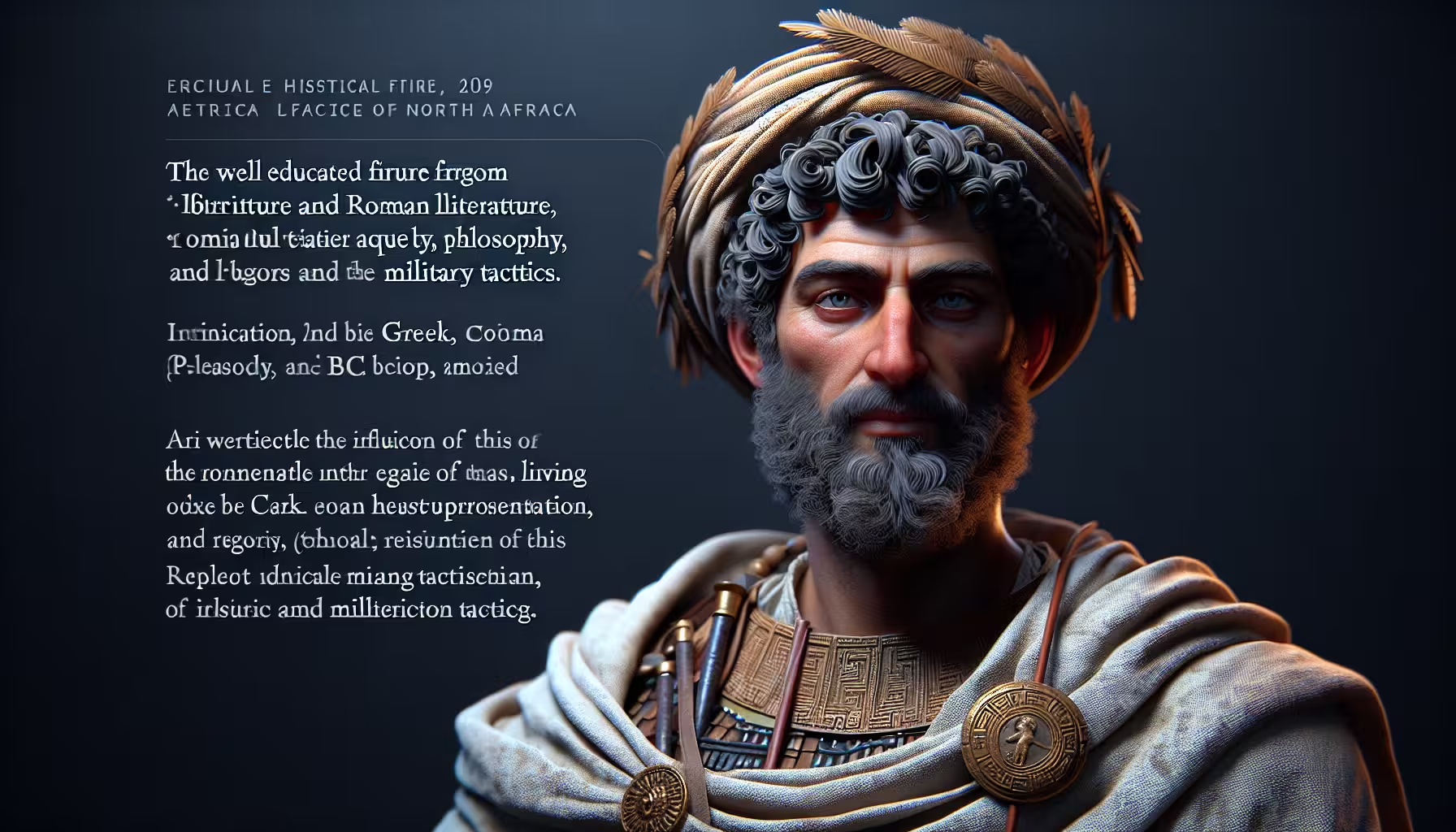
Juba I was a legendary figure in ancient history, known for his comprehensive education in Greek and Roman literature, philosophy, and military tactics. As the king of Numidia, he played a significant role in the Roman Empire and was highly regarded for his intelligence and strategic prowess. His influence and legacy have left a lasting impact on the history of North Africa and the ancient world. Join me as we explore the remarkable life of Juba I and his enduring legacy.
Introduction
Juba I, born in 85 BC, was a distinguished figure in the history of ancient North Africa. He was a member of the royal family of Numidia, a region in present-day Algeria and Tunisia. Juba I received a comprehensive education in Greek and Roman literature, philosophy, and military tactics, making him a highly educated and skilled leader. His deep understanding of ancient literature and philosophy gave him a unique perspective as a military leader and ruler. This education played a crucial role in shaping Juba I’s approach to governance and his influence on the geopolitical landscape of North Africa. Weaving together his intellectual prowess and military prowess, Juba I’s life is a fascinating intersection of ancient scholarship and military strategy.
Juba I, a Berber prince and King of Numidia, received a comprehensive education in Greek and Roman literature, philosophy, and military tactics during his time as a hostage in Rome after the defeat of his father in 46 BC.
Juba I’s Comprehensive Education
As a young prince of Numidia, Juba I received a comprehensive education that was uncommon for a ruler of his time. He was well-versed in Greek and Roman literature, philosophy, and military tactics. His tutors made sure that he gained a deep understanding of the classical world, which included studying the works of prominent ancient writers such as Homer, Plato, and Aristotle. This education would later prove to be invaluable in his role as a leader and military commander.
The Influence of Greek and Roman Literature
Juba I’s deep appreciation for Greek and Roman literature greatly shaped his worldview and leadership style. He was known for his eloquence and was able to inspire his subjects through his mastery of oratory and rhetoric. His knowledge of the classics also influenced his decision-making as a ruler, as he often drew upon the wisdom of ancient texts to guide his policies and governance. Juba I’s education in literature not only enriched his personal life but also left a lasting impact on the cultural and intellectual development of Numidia.
Military Tactics and Strategy
In addition to his literary education, Juba I also studied military tactics and strategy. He was a skilled commander and led his armies with intelligence and foresight. His understanding of ancient military tactics, combined with his own innovative ideas, allowed him to achieve several significant victories on the battlefield. Juba I’s comprehensive education in both the arts and the sciences positioned him as a well-rounded and formidable leader, earning him the respect and admiration of his subjects and contemporaries alike.
Did you know that Juba I, the king of Numidia, received a comprehensive education in Greek and Roman literature, philosophy, and military tactics? His father, King Hiempsal II, ensured that he was well versed in these disciplines in order to prepare him for leadership and statesmanship. This in-depth education allowed Juba I to become an influential and knowledgeable ruler in the ancient world.
Read more:
the-founder-and-first-sultan-of-jubajuba-i-king-of-numidia-and-north-africa
juba-i-military-intellect-and-artistic-patronage
juba-i-from-ally-to-foe
juba-i-prosperity-and-cultural-influence